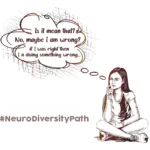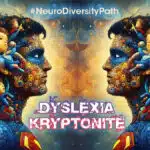Do you ever wonder how to unlock the full potential of learners with ADHD? In the dynamic realm of education, addressing the unique needs of ADHD learners requires a tailored approach infused with empathy and creativity. But fear not, for within these challenges lie opportunities for growth and empowerment. In today’s post, we will explore seven effective strategies designed to empower ADHD learners, equipping them with the tools and support they need to thrive academically and beyond. From fostering a growth mindset to implementing personalized learning techniques, each strategy is grounded in practicality and compassion. By the end of this journey, you’ll gain invaluable insights and actionable tips to help ADHD learners unlock their true potential and soar to new heights of success. Join us as we embark on this transformative journey together.

1. Understanding the ADHD Learner
Embracing Neurodiversity
Understanding the ADHD learner begins with embracing neurodiversity, recognizing that every individual’s brain functions uniquely. ADHD is not a deficit but rather a difference in cognitive processing, characterized by challenges in attention, hyperactivity, and impulsivity. Each ADHD learner possesses a unique set of strengths and weaknesses, which may include creativity, hyperfocus, and resilience. By recognizing and celebrating neurodiversity, educators can create inclusive learning environments that cater to the diverse needs of all students.
Strategies for Success
Empowering ADHD learners starts with implementing strategies tailored to their needs and strengths. Provide structure and routine, helping ADHD learners stay organized and manage their time effectively. Offer clear and concise instructions by breaking down tasks into manageable steps to reduce overwhelm. Encourage frequent movement breaks and hands-on learning activities, allowing ADHD learners to release excess energy and engage their senses. By understanding the unique characteristics of ADHD learners and implementing targeted strategies, educators can create supportive environments where these learners can thrive academically and personally.
2. Shifting Perspectives on Learning
Embracing a Growth Mindset
Shifting perspectives on learning involves embracing a growth mindset, emphasizing that intelligence and abilities can be developed through effort and perseverance. Research conducted by Dr. Carol Dweck at Stanford University has shown that students who adopt a growth mindset are more likely to embrace challenges, persist in the face of setbacks, and ultimately achieve greater success academically. Encourage ADHD learners to view challenges as opportunities for growth rather than insurmountable obstacles. Foster a culture of encouragement and praise for effort and progress rather than solely focusing on outcomes. By promoting a growth mindset, educators can empower ADHD learners to approach learning with confidence and resilience.
Constructive Feedback and Resilience
In this context, effective feedback is key to supporting ADHD learners. Research by Dr. John Hattie demonstrates the powerful impact of specific, actionable feedback on student achievement. ADHD learners benefit from praise reinforcing their efforts and progress rather than focusing solely on outcomes. Encourage goal-setting, self-reflection, and resilience in response to failure. These practices help ADHD learners view setbacks not as permanent barriers but as valuable opportunities for growth.
3. Tailoring Education to Individual Needs
Individualized Instruction
Tailoring education to individual needs involves implementing individualized instruction strategies that cater to the unique strengths and challenges of ADHD learners. Research from the National Center for Learning Disabilities emphasizes the importance of personalized instruction in improving outcomes for ADHD students. Use flexible learning environments where ADHD learners can work at their own pace. Offering choice and autonomy in assignments empowers ADHD learners to take ownership of their learning, making the process more engaging and aligned with their interests.
Differentiated Learning Activities
Incorporating differentiated instruction is also critical for ADHD learners. Research by Dr. Carol Ann Tomlinson suggests that differentiated learning improves engagement and achievement by catering to various learning styles. By varying materials and learning experiences, educators ensure that ADHD students can access the support and challenges that help them grow.
4. Tools for Organization and Time Management
Executive Function Skills
Organizational and time management tools are essential for supporting the executive function skills of ADHD learners. These skills, which include planning, time management, and organization, are often difficult. Research from the Child Mind Institute highlights that providing ADHD learners with tools such as planners, checklists, and apps can help them better manage their academic responsibilities.
Visual Supports
Visual aids can be especially helpful in supporting organization and time management. According to research from the University of Washington, visual supports like color-coded schedules, charts, and graphic organizers make information more accessible and help ADHD learners track their tasks and deadlines more effectively. This method enhances their ability to stay organized and complete tasks on time.
5. Fostering Inclusivity and Acceptance
Fostering inclusivity and acceptance is essential for creating a supportive learning environment where ADHD learners feel valued and respected. Research from the University of Cambridge underscores the importance of creating a culture of acceptance in promoting positive outcomes for neurodiverse learners. Building empathy and understanding among students promotes a sense of community and belonging. Classroom discussions about neurodiversity help dispel myths, fostering empathy and appreciation for the strengths of ADHD learners.
Peer Support and Collaboration
Research from the National Institutes of Health shows that collaboration and peer support help ADHD learners develop stronger social skills. Structured group work can be beneficial, allowing students to learn from one another’s strengths and support each other in areas of difficulty. This not only improves social interactions but also enhances learning outcomes.
6. Channeling ADHD Energy for Productivity
ADHD learners often have an abundance of energy, which, when properly channeled, can be a strength. According to research from the University of Pennsylvania, individuals with ADHD often experience “hyperfocus” when engaged in tasks they are passionate about. By providing opportunities to pursue their interests, ADHD learners can leverage this hyperfocus to achieve remarkable success.
Managing Distractions
It is equally important to help ADHD learners develop strategies for managing distractions. Techniques such as mindfulness practices have improved focus in ADHD students. Encourage activities like deep breathing or meditation to help calm and center ADHD learners, allowing them to maintain focus even in distracting environments.
7. Recognizing and Celebrating ADHD Learners
Recognizing the strengths and celebrating the achievements of ADHD learners is key to building confidence and fostering growth. Research from Dr. Edward Hallowell suggests that positive reinforcement and public recognition can greatly improve the self-esteem and motivation of ADHD students. By frequently acknowledging their progress—whether in academics, behavior, or organization—educators can help boost ADHD learners’ sense of accomplishment and belief in their potential.
“In every child who is born, no matter what circumstances, and of no matter what parents, the potentiality of the human race is born again.”
– James Agee
In conclusion, empowering ADHD learners requires a multifaceted approach combining understanding, individualized support, and celebrating their strengths. By fostering an inclusive, supportive environment, educators can unlock the potential within each ADHD learner, allowing them to thrive academically and personally. As we continue to explore strategies for supporting neurodiverse learners, we strengthen the fabric of our educational communities, making them richer, more inclusive spaces for all.
What are your experiences in supporting ADHD learners? Share your insights and strategies in the comments below as we continue to foster a community of inclusion and empowerment.





